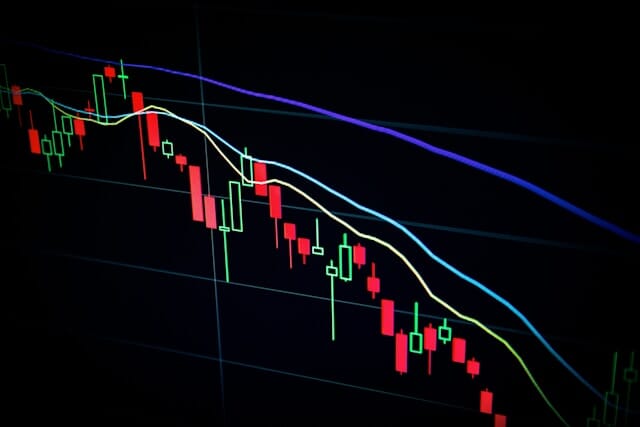In a significant policy reversal, Nigeria's Federal Government has suspended the implementation of a proposed 15% import duty on premium motor spirit (petrol) and automotive gas oil (diesel). This move, announced by the Nigerian Midstream and Downstream Petroleum Regulatory Authority (NMDPRA) on November 13, 2025, comes amid widespread concerns over potential fuel price increases and inflationary pressures. The suspension averts an additional financial burden on consumers, who were bracing for higher pump prices starting November 21, 2025
Background on the Proposed 15% Import Duty on Petrol and Diesel
The duty was initially approved by President Bola Tinubu on October 29, 2025, following a proposal from the Federal Inland Revenue Service (FIRS) Executive Chairman, Zacch Adedeji. It aimed to impose a 15% ad valorem tax on the cost, insurance, and freight value of imported fuels.
The primary goal was to protect domestic refineries, particularly the Dangote Refinery, by making imported products less competitive and encouraging local production. Nigeria, Africa's top oil producer, has historically relied on fuel imports despite its crude oil wealth, draining foreign exchange reserves and hindering job creation in the downstream sector.
Experts estimated that the tariff could add approximately N99.72 per liter to petrol prices, pushing them beyond N1,000 per liter in some areas. This would have resulted in an annual cost of about N973.6 billion to Nigerians on petrol imports alone, exacerbating the cost-of-living crisis. The policy was part of broader reforms under the Petroleum Industry Act to achieve fuel self-sufficiency and stabilize the market.
Reasons for Suspending the 15% Fuel Import Duty in Nigeria
The decision to halt the duty followed intense backlash from civil society organizations, economists, and industry stakeholders. Groups like the Peering Advocacy and Advancement Centre in Africa (PAACA) and the African Centre for Media and Information Literacy urged the government to suspend the tariff until domestic refining capacity reaches at least 80% of national demand.
They argued that without sufficient local output, the duty would trigger artificial fuel scarcity, black-market activities, and higher inflation.
NMDPRA's spokesperson, George Ene-Ita, confirmed in a statement that the 15% ad valorem import duty is "no longer in view," emphasizing adequate petroleum supply nationwide to prevent panic buying. Analysts suggest the suspension reflects the government's response to public outcry and economic realities, including volatile foreign exchange rates and ongoing challenges in the energy sector.
President Tinubu's administration appears to prioritize short-term relief over immediate protectionism, allowing time for refineries to ramp up production.
Economic Implications of the Petrol and Diesel Duty Suspension
By suspending the import duty, the Federal Government has likely prevented an immediate spike in transportation and logistics costs, which rely heavily on diesel and petrol.
This could help contain inflation, already strained by previous fuel subsidy removals and naira devaluation. Consumers, especially low-income households and small businesses, stand to benefit from stable pump prices in the near term.
However, the move raises questions about long-term energy security. Without the tariff, imported fuels may continue undercutting local refiners, potentially delaying Nigeria's shift to self-sufficiency. The Dangote Refinery, a key player, could face pricing pressures, impacting investments in domestic infrastructure.
Economists warn that while the suspension eases current hardships, it underscores the need for transparent supply agreements and regulatory oversight to prevent monopolistic practices.
On a positive note, the policy pause might encourage competition in the downstream sector. The government has been urged to establish a downstream competition framework and an Energy Market Monitoring Unit under the Federal Competition and Consumer Protection Commission to track anti-competitive behavior. This could foster fair access to refinery outputs and promote monthly disclosures of production and import data for greater transparency.
Reactions to Nigeria's Suspension of 15% Import Tariff on Fuels
Stakeholders have largely welcomed the suspension. Civil society leaders, who previously highlighted risks of exploitation disguised as national pride, praised the decision as a win for citizens. Ezenwa Nwagwu of PAACA described it as essential for economic stability, urging further reforms.
Industry groups like the Enugu Chamber of Commerce, Industry, Mines, and Agriculture initially supported the duty but acknowledged the timing issues amid inadequate refining capacity. Public reactions on social media reflect relief, with many Nigerians expressing concerns over repeated policy flip-flops that erode trust in governance.
Future Outlook for Fuel Import Policies in Nigeria
Looking ahead, the suspension provides breathing room for the government to address underlying challenges. Enhancing refinery operations, including the Port Harcourt and Warri facilities alongside Dangote, remains crucial. The NMDPRA has reassured the public of supply sufficiency during peak demand, but sustained efforts are needed to avoid future shortages.
In summary, this policy shift demonstrates responsiveness to economic pressures while highlighting the complexities of Nigeria's energy transition. As the nation strives for fuel independence, balanced reforms that protect consumers and investors will be key to long-term success.
Read More
- DStv Extends Free Premium Package Period For All Subscribers Until December 2025
- IMF Sounds Alarm: Nigeria's Debt Trap, Oil Crash, Revenue Black Hole Exposed at World Bank 2025
- Nigeria's Push for Global Stablecoin Leadership: CBN Takes Center Stage
- Can't Run a POS Business If You Owe Bank Loans? Breaking Down the New CBN Rules

